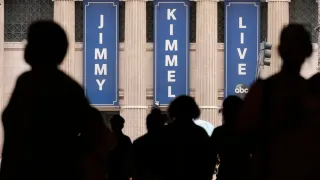
3 hours ago
Gen Z’s Relationship Slang Decoded: What “Shrekking” and Other Modern Terms Reveal About Dating in 2025
READ TIME: 4 MIN.
Every generation develops its own language around love, but Gen Z’s approach to dating has been shaped by social media, shifting societal values, and a desire for authenticity. From “Shrekking” to “cookie jarring,” the lexicon of modern romance reflects changing attitudes toward attraction, vulnerability, and identity—especially within LGBTQ+ communities. Understanding these terms isn’t just about keeping up; it’s about recognizing how young people are expressing their needs and boundaries in an ever-evolving social landscape .
“Shrekking” is a dating trend coined by Gen Z that involves intentionally dating someone one finds less attractive, believing this person will treat them better than conventionally attractive partners. The term references the animated film “Shrek,” where Princess Fiona chooses Shrek, an ogre, over more traditionally handsome suitors, hoping for a deeper, more meaningful connection. However, in practice, “Shrekking” often leads to disappointment when the hoped-for kindness doesn’t materialize, and individuals realize that looks are not a predictor of how someone will treat you .
Relationship experts caution that this trend can perpetuate harmful stereotypes about appearance and character. Amy Chan, author of “Breakup Bootcamp,” notes, “Physical attraction matters in romantic relationships, but it shouldn’t be the inverse predictor of good treatment that some people assume it to be.” This nuanced conversation is especially relevant to LGBTQ+ communities, where breaking free from conventional beauty standards has long been part of the fight for acceptance and self-love .
Gen Z’s dating vocabulary goes far beyond “Shrekking.” Here are some terms currently circulating, each with its own implications for relationship dynamics:
- “Cookie Jarring”: Keeping someone as a backup option while pursuing another relationship. This term reflects fear of loneliness or uncertainty about commitment, and can be particularly damaging in tight-knit LGBTQ+ communities where trust and openness are highly valued .
- “Roaching”: Hiding the fact that you’re seeing multiple people simultaneously, only revealing the truth if caught. This behavior often leads to feelings of betrayal and is a growing concern among LGBTQ+ singles seeking honest, monogamous connections .
- “Zombieing”: When an ex reappears in your life after a period of no contact, often without explanation. For LGBTQ+ individuals, who may have limited dating pools in smaller communities, this can create cycles of emotional distress and confusion .
- “Banksying”: Inspired by the mysterious street artist Banksy, this term describes someone who suddenly disappears from a relationship without warning, leaving only memories—much like Banksy’s elusive art installations. The emotional impact is similar to “ghosting,” which has become a universal dating concern .
Experts argue that the proliferation of terms like “Shrekking” reflects deeper frustrations with modern dating. Social media platforms such as TikTok and X (formerly Twitter) serve as forums for young people to share their experiences and coin new phrases. Amy Chan observes that “modern dating has gotten so complicated that we need new words just to describe what’s happening to us,” with vocabulary evolving to help individuals process heartbreak and connect over shared struggles .
The rise of these terms also speaks to shifting priorities: Gen Z is more likely to value emotional availability, shared values, and authenticity over traditional attractiveness, a perspective that resonates with many in LGBTQ+ communities who have long sought deeper connections beyond surface-level judgment .
For LGBTQ+ individuals, dating has historically involved navigating a complex landscape of visibility, safety, and acceptance. The emergence of terms like “Shrekking” invites renewed discussion about standards, expectations, and self-worth. Many LGBTQ+ singles report feeling pressure to conform to mainstream beauty ideals, while others embrace alternative standards that prioritize personality, activism, and shared experiences.
Relationship expert Emma Hathorn warns that “Shrekking” may discourage people from dating outside their usual type, reinforcing narrow beauty standards and excluding those who don’t fit conventional molds. Instead, she encourages everyone to “develop better assessment skills for character, values and emotional availability regardless of what package they come in” .
Within LGBTQ+ circles, there’s an ongoing dialogue about how these trends intersect with issues of representation and inclusion. For example, transgender people and nonbinary individuals may experience additional scrutiny regarding attractiveness and desirability, making it especially important to challenge assumptions about what constitutes a “worthy” partner .
For readers unfamiliar with these terms, understanding Gen Z slang isn’t just about keeping up with the latest trends—it’s about bridging generational divides and fostering empathy. Older adults can connect with younger LGBTQ+ individuals by asking open questions, sharing their own dating experiences, and recognizing that the core challenges of vulnerability, disappointment, and hope remain universal, even as the language changes.
Experts recommend approaching these conversations with curiosity rather than judgment, acknowledging that while “Shrekking” and other trends may seem unfamiliar, they stem from age-old dilemmas about love and acceptance. By learning the language of today’s dating world, older audiences can support younger generations in their search for meaningful, authentic relationships .
Gen Z’s relationship slang is more than a set of quirky words—it’s a reflection of changing social norms and the ongoing quest for genuine connection. For LGBTQ+ communities, these terms provide new tools to discuss identity, boundaries, and expectations in a rapidly evolving world. As language continues to shift, one thing remains clear: the desire for love, respect, and understanding is as strong as ever, no matter what words we use to describe it.






